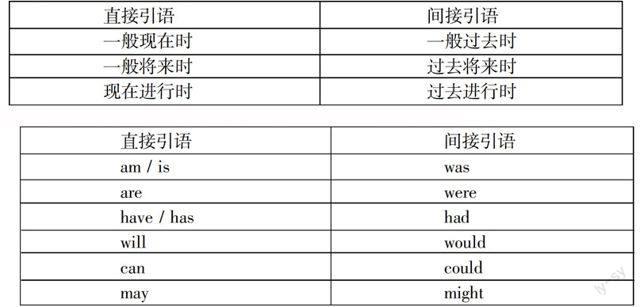新目标英语八年级(上)重点语法回顾

【一般将来时】
一般将来时表示将来某个时间要发生的动作或者存在的状态。通常与表示将来的时间状语连用,如tomorrow, the day after tomorrow, next year, next month, next week, in 100 years等。
Ⅰ. be going to do(动词原形)结构:表示打算、准备做的事情或者肯定要发生的事情。
例:It is going to rain. 天要下雨了。
Ⅱ. will do 结构表示将来的用法:
1. 表示预见
例:Do you think it will rain? 你认为会下雨吗?
You will feel well after a good rest. 你好好休息一下就会了。
2. 表示意图
例:I will borrow a book from our school library tomorrow. 我明天要去学校图书馆借本书。
What will she do tomorrow? 她明天会做什么?
3. 基本构成
一般疑问句构成:
(1)will+主语+do...?
例:Will Sarah come to visit my home next Sunday? 萨拉下星期天会来我家吗?
(2)there be结构的一般疑问句:Will there + be...?
例:—Will there be more trees? ——将来那儿的树会多些吗?
—Yes, there will. ——会的。
4. 否定句构成:will + not (wont)+do
例:Mary wont go for a picnic next Sunday. 玛丽下星期天不会去野炊的。
5. 特殊疑问句构成:特殊疑问词+will+主语+……?
例:What will Jack do next Monday? 杰克下星期一会做什么呢?
【should的用法】
1. should用来提出建议和忠告,后边加动词原形,否定句直接在should后边加not。
例:I think you should eat less junk food.
我认为你应该少吃垃圾食品。
She drives a lot and she seldom walks. So I think she should walk a lot.
她经常开车,很少走路。所以我认为她应该多走走。
Students shouldnt spend too much time playing computer games.
学生们不应当花太多的时间玩电脑游戏。
2. 向别人提建议的几种句式:
(1)I think you should...
(2)Well, you could...
(3)Maybe you should...
(4)Why dont you...?
(5)What about doing sth.?
(6)Youd better do sth.
【过去进行时】
过去进行时表示过去某一点时间正在进行的动作或者过去某一段时间内一直进行的动作。
1. 基本构成:
was / were + doing sth.
例:I was watching TV at 9 oclock last night. (at 9 oclock last night是时间点)
They were playing football all afternoon. (all afternoon是时间段)
2. 过去进行时的标志词,如:at +时间点+last night / evening, this time yesterday / the day
before yesterday, at that time等等表示过去某个具体时间的词。
例:I was having lunch at home this time yesterday.
昨天的这个时候我正在吃午饭。
At that time she was writing a book.
那阵子她在写一本书。
(表示她在那段时间里一直在做那件事情。)
【间接引语】
1. 主要特征:
(1)不要逗号,冒号,引号;
(2)要考虑到人称的变化(人称的变化与汉语是一致的);
(3)要考虑时态的变化;
(4)要考虑时间状语、地点状语和语示代词的变化。
2. 直接引语变成间接引语时,几个主要时态的变化规律:
3. 直接引语变成间接引语时,一些动词时态的变化规律:
【if引导的条件状语从句】
1. 基本结构:if+一般现在时,主语+将来时
2. 含义:如果……,将要……
例如:If you ask him, he will help you. 如果你请求他,他会帮助你。
If need be, well work all night. 如果有需要,我们会通宵工作。
【训练基地】
Ⅰ. 根据例句,用will改写下列句子。
例:I dont feel well today. (be better tomorrow)
Ill be better tomorrow.
1. Gina has six classes today. (have a lot of homework tonight)
.
2. Im tired now. (sleep later)
.
3. My parentscar is too old. (buy new one soon)
.
4. We cant leave right now. (leave a little later)
.
5. The weather is awful today. (be better tomorrow)
.
Ⅱ. 用should或shouldnt填空。
1. —I cant sleep the night before exams.
—You ______ take a warm shower before you go to bed.
2. Good friends ______ argue each other.
3. There is little milk in the glass. We ______ buy some.
4. They didnt invite you? Maybe you ______ be friendlier.
5. I am a little bit overweight. So I think I ______ do exercises every day.
Ⅲ. 用括号中所给动词的适当形式填空,每空一词。
1. This time yesterday I ______ ______ (read) books.
2. At 9 oclock last Sunday they ______ ______ (have) a party.
3. When I ______ (come) into the classroom, she ______ ______ (read) a storybook.
4. She ______ ______ (play) computer games while her mother ______ ______ (cook) yesterday afternoon.
5. I ______ ______ (have) a shower when you ______ (call) me yesterday.
Ⅳ. 用括号中所给动词的适当形式填空。
1. She said I ______ (be) hard-working.
2. Peter told me he ______ (be) bored yesterday.
3. She said she ______ (go) swimming last Sunday.
4. Bobby said he ______ (may) call me later.
5. Antonio told me he ______ (read) a book then.
Ⅴ. 请转述他人说的话,将下面的句子改成间接引语。
1. Tom said, “I go to the beach every Saturday. ”
2. Lucy said, “I can speak three languages. ”
3. Mike said, “I will call you tomorrow. ”
4. She said, “Im having a surprise party for Lana. ”
Ⅵ. 根据中文提示,完成句子。
1. 如果你去参加聚会,你将会玩得很开心。
If you ______ the party, you ___________________________.
2. 如果明天下雨,我们将不去野餐。
If it ______ tomorrow, we ___________________________.
3. 如果你经常听英文歌,你将会喜欢英语的。
If you often ___________, you ___________________________.

